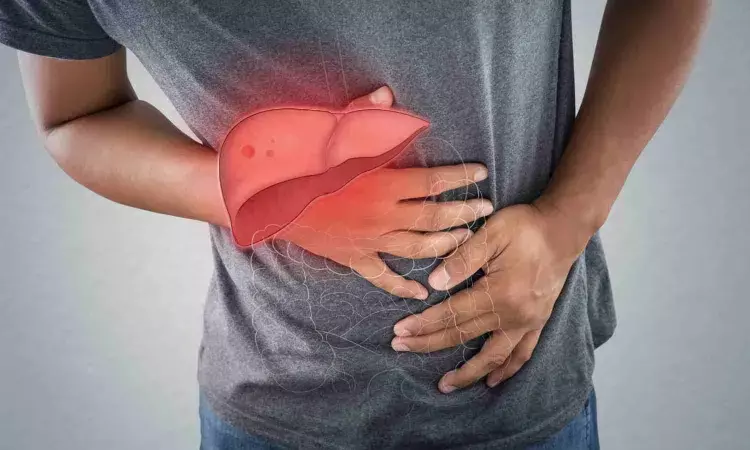- Home
- Medical news & Guidelines
- Anesthesiology
- Cardiology and CTVS
- Critical Care
- Dentistry
- Dermatology
- Diabetes and Endocrinology
- ENT
- Gastroenterology
- Medicine
- Nephrology
- Neurology
- Obstretics-Gynaecology
- Oncology
- Ophthalmology
- Orthopaedics
- Pediatrics-Neonatology
- Psychiatry
- Pulmonology
- Radiology
- Surgery
- Urology
- Laboratory Medicine
- Diet
- Nursing
- Paramedical
- Physiotherapy
- Health news
- Fact Check
- Bone Health Fact Check
- Brain Health Fact Check
- Cancer Related Fact Check
- Child Care Fact Check
- Dental and oral health fact check
- Diabetes and metabolic health fact check
- Diet and Nutrition Fact Check
- Eye and ENT Care Fact Check
- Fitness fact check
- Gut health fact check
- Heart health fact check
- Kidney health fact check
- Medical education fact check
- Men's health fact check
- Respiratory fact check
- Skin and hair care fact check
- Vaccine and Immunization fact check
- Women's health fact check
- AYUSH
- State News
- Andaman and Nicobar Islands
- Andhra Pradesh
- Arunachal Pradesh
- Assam
- Bihar
- Chandigarh
- Chattisgarh
- Dadra and Nagar Haveli
- Daman and Diu
- Delhi
- Goa
- Gujarat
- Haryana
- Himachal Pradesh
- Jammu & Kashmir
- Jharkhand
- Karnataka
- Kerala
- Ladakh
- Lakshadweep
- Madhya Pradesh
- Maharashtra
- Manipur
- Meghalaya
- Mizoram
- Nagaland
- Odisha
- Puducherry
- Punjab
- Rajasthan
- Sikkim
- Tamil Nadu
- Telangana
- Tripura
- Uttar Pradesh
- Uttrakhand
- West Bengal
- Medical Education
- Industry
Pentraxin 3 accurately predicts advanced fibrosis and CIMT in patients with MAFLD: Study

Background and objectives
Metabolic-associated fatty liver disease (MAFLD) may increase the risk of cardiovascular events. In this study, we assessed the predictive value of pentraxin 3 (PTX3) for severe fibrosis and carotid intima-media thickness (CIMT) in patients with MAFLD.
Methods
188 patients (114 with MAFLD, 74 with dual etiology MAFLD and chronic hepatitis C) were included. All participants underwent clinical history and examination, metabolic parameter assessment, serum level evaluation of PTX3, Fibrosis-4 index and nafld fibrosis score scores, abdominal ultrasound, and CIMT assessment.
Results
The serum PTX3 was significantly elevated in patients with advanced fibrosis compared to those with mild/moderate fibrosis (1.8 vs 1.4, p = 0.006). The PTX3 level was independently associated with advanced fibrosis (odds ratio = 1.26, 95% confidence interval 1.008–1.040). In MAFLD patients, the PTX3 levels in patients with low fibrosis compared to those with advanced fibrosis were 1.4 (1–2.1) and 1.9 (1.3–3.8), respectively (p = 0.027). A significantly greater CIMT was noted in patients with elevated PTX3 levels (3.85 (3.42–4) vs 4.05 (3.7–4.67), p = 0.0001) compared to those with low PTX3 levels.
Conclusions
In this study, we demonstrated that PTX3 accurately predicts the presence of advanced fibrosis and CIMT in a population with MAFLD. Thus, it could be useful for risk stratification and management. Further independent studies will be required to confirm these findings in larger cohorts and in the general population, which has diverse representations of individuals of other races and ethnicities.
References: Alshymaa A. Hassnine1,* , Yasser Fouad1, Zienab M. Saad1, Alaa M. Mostafa1, Hend M. Moness2, Nehal I. Abbas2, Nasr M. Osman3 and Wafaa Abdelghany1
Author information Gene Expression 2024doi: 10.14218/GE.2023.00047
Dr Kamal Kant Kohli-MBBS, DTCD- a chest specialist with more than 30 years of practice and a flair for writing clinical articles, Dr Kamal Kant Kohli joined Medical Dialogues as a Chief Editor of Medical News. Besides writing articles, as an editor, he proofreads and verifies all the medical content published on Medical Dialogues including those coming from journals, studies,medical conferences,guidelines etc. Email: drkohli@medicaldialogues.in. Contact no. 011-43720751


